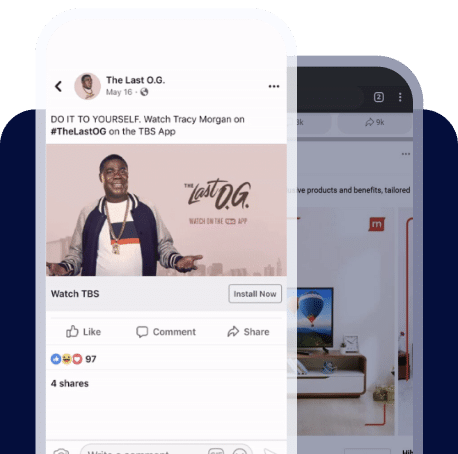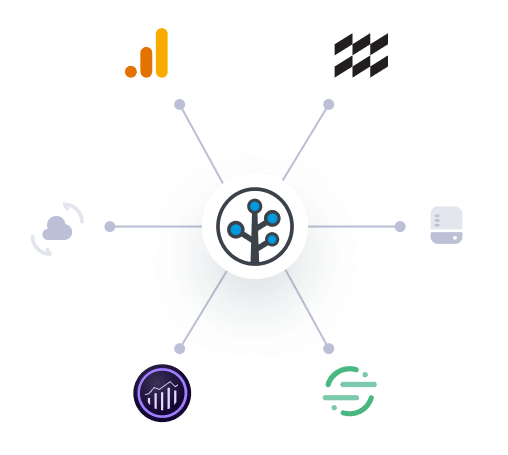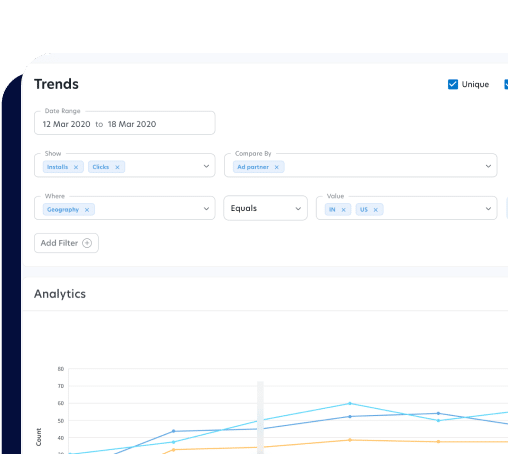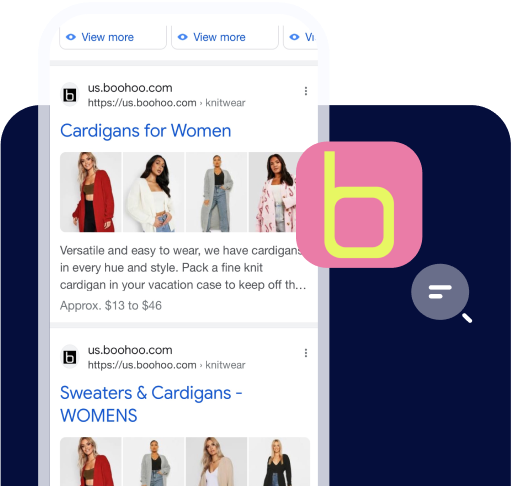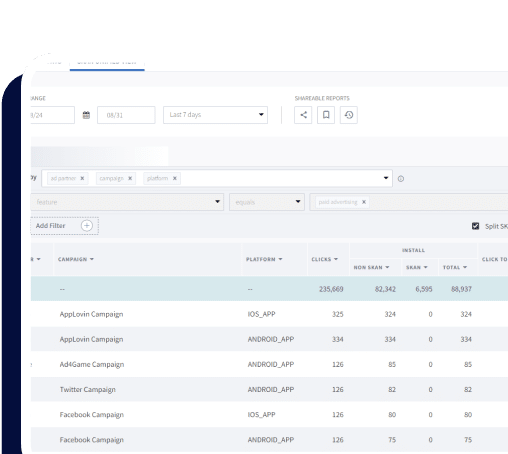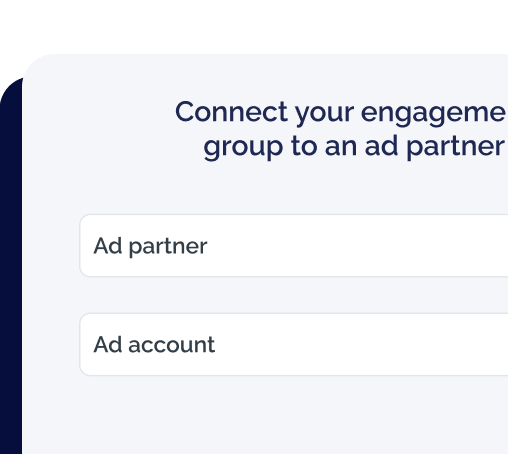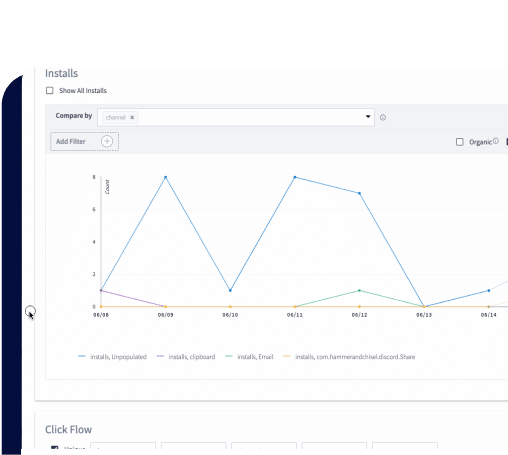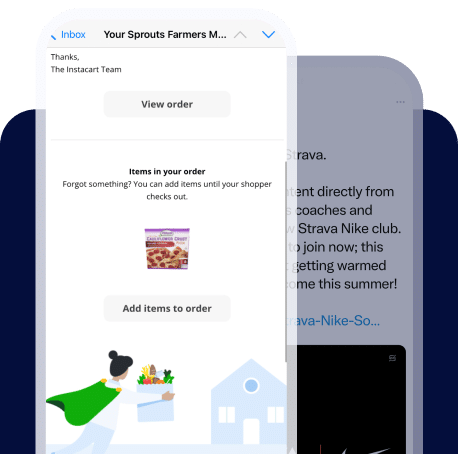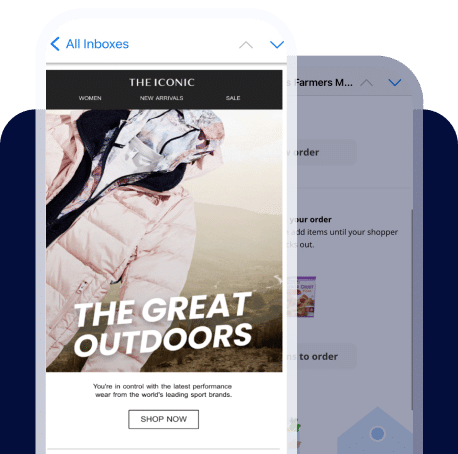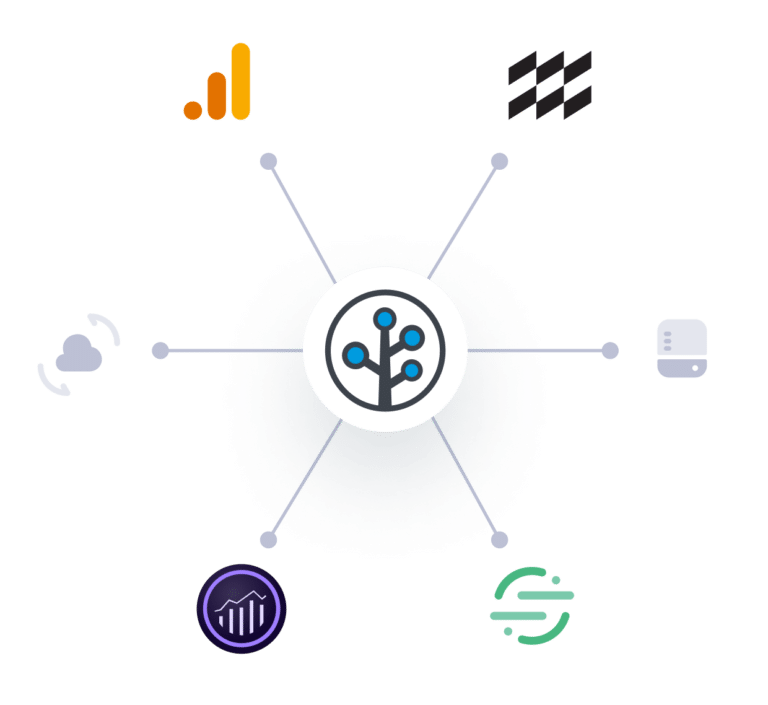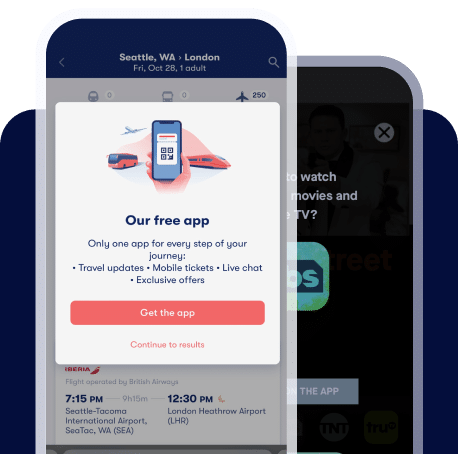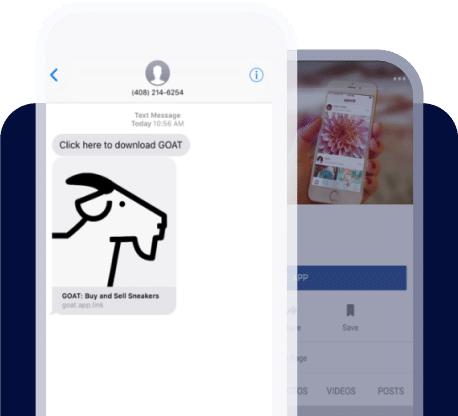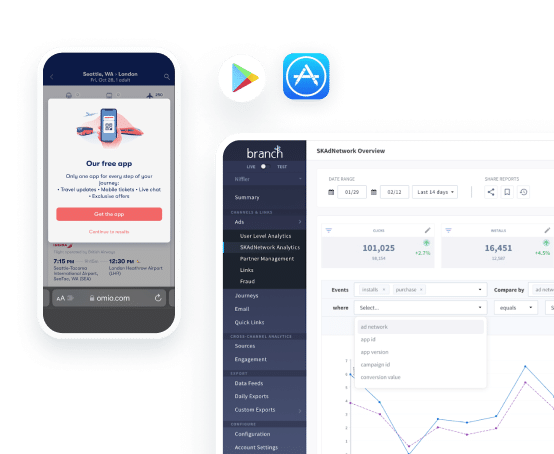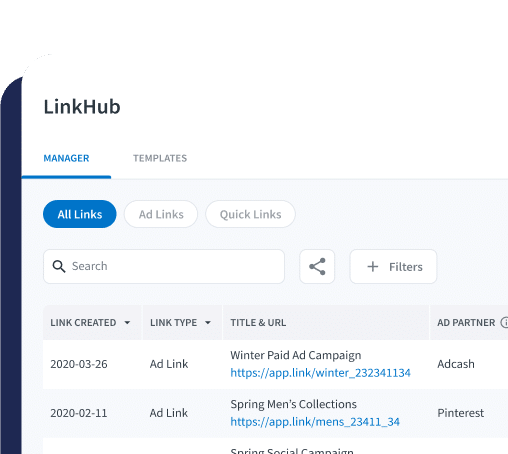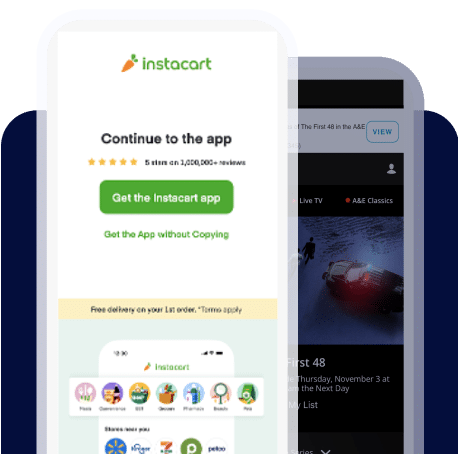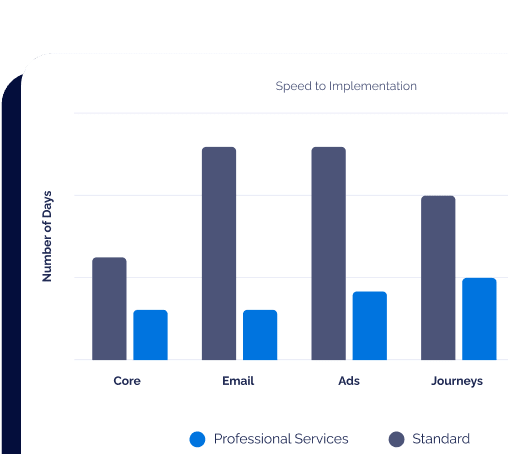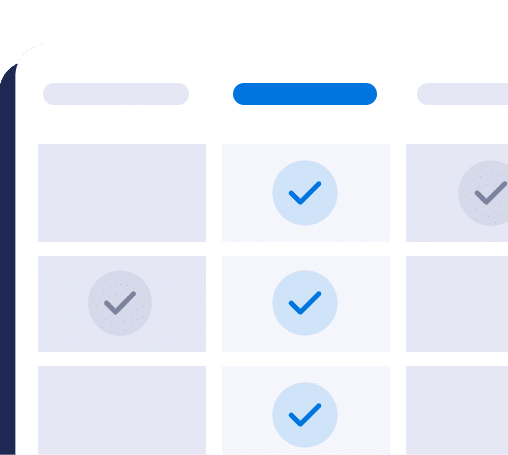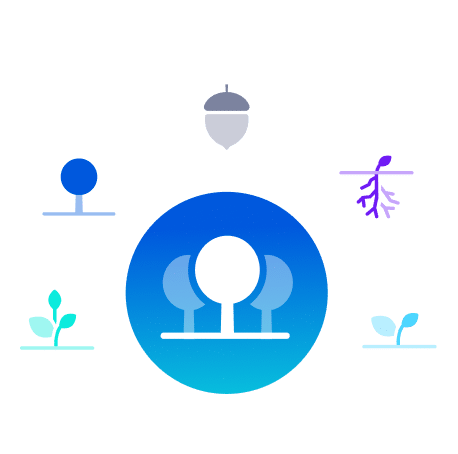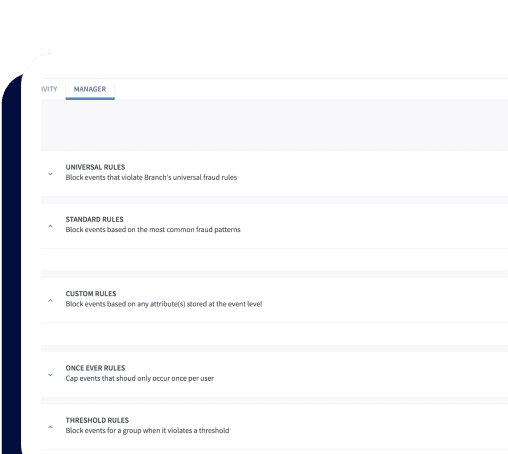Daniel Shlossman is the SVP, DIgital + Growth @ sweetgreen. He leads marketing, product, and digital channels. In his three years at sweetgreen, Daniel has been focused on enabling customer growth through channel expansion and improvement, including the launch of sweetgreen’s off-premise business, via Outpost and delivery. Daniel’s incredible background includes roles at Uber (as Head of West Coast Operations & Marketing) and at NFL (as their Director of Product for Fantasy Football).
Disruption in any market starts with passionate founders who see opportunities to scale in all domains and are not limited by a particular mode or channel of growth. Don’t think that you need to build a mobile app because “everyone else is doing it”. A mobile app gives you the opportunity to use your resources to add value to your customers’ lives and grab a huge chunk of the market in the process.
Even with a great product-market fit, your team is the most crucial aspect of building a mobile app. A collaborative culture among people who love to work together allows for that facilitation across different departments and different channels and is crucial to make growth happen.
You should identify opportunity areas and really go after them. Even if you don’t know something – you will make mistakes and learn from them. It’s important to have candid conversations to get better with each decision. Follow a detailed diagnosis process within your team to learn from your mistakes as well as projects that were fully or partially successful.
Sometimes, the best ideas come from taking something your customers already love and making it even better. One great way to turn such commonplace ideas into massive growth opportunities is to combine a few popular features that customers are experiencing in your app or your competitors. Also, look at enhancing key features to add something new to the app.
Successful pivots in tough times like the pandemic require nimbleness and agility in executing a response to the new situation. At sweetgreen, they found this opportunity via shifting operations to donations to frontline medical workers in need. They repurposed and adapted their existing processes to respond to this opportunity.
Personalization allows you to get close to the customers. At sweetgreen, Daniel thinks about personalization from the perspective of the customer. This way, personalizing a service goes far beyond small changes that give customers some control over the product you create for them. It means letting them care about the product in a way that grants them ownership of the product resulting from the service, including full customization of chosen ingredients.
[00:00:00] Julian: Hey everybody. This is Julian Scheinbaum subbing in for Mada. Our amazing founder today. I am so excited to be here with our next guest Daniel Schlozman, who is the SVP of digital at sweet green. Now this conversation got started because I am a super green super fan. Most of you listening to this podcast have probably had Sweetgreen either on your own.
[00:00:23] Or deliver to your office through the Sweetgreen outpost. So I think this is going to be an incredible episode, a little background on Daniel, Daniel, like I said, is the SVP of digital and growth at Sweetgreen where he leads marketing product and digital channels. And his three years at Sweetgreen, Daniel’s focused on enabling customer growth through channel expansion and improvement, including the launch of street greens off premise business, via outpost and delivery.
[00:00:47] We’re going to talk a little bit about that later today. His, his sweet grand experience again has been just the last couple of years. But before that he’s at a number of incredible roles, many of which are mobile focused. So previously he worked a couple of years at Uber where he was the head of west coast operations and marketing and product and marketplace experience at the NFL as well, where he launched and at the NFL fantasy football business, I think there’s going to be incredible conversation.
[00:01:13] Daniel. You’ve got an incredible background here, so let’s get into it. Really excited
[00:01:18] Daniel: to have you on the show. Yeah. Thanks Julia. And same here. I wish that we had a, a, a sweet green bull in front of you right now, but, uh, we’ll have to take care of that for next.
[00:01:27] Julian: Yeah, well, hopefully after this episode, maybe you’ll hook us up with some swag and I’ll be rocking one of those sweet green hats.
[00:01:32] I think I actually have one of those. So this is going to be a lot of fun. So I think like, you know, sweet greens, obviously where you’re at now and we’re going to dig it and that a bit, but I would love to go to the beginning. You know, many of our audience members. Early in their careers. They’re, they’re expanding into the mobile world and really trying to figure out like, how do you become successful in this industry?
[00:01:52] And so I would love to start all the way back at the beginning. When you started at the NFL, when you were in the NFL, you were in a rotational program that basically building out their fantasy football platform. It’s a funny for us because this is so widely adopted today. And you know, all of us are fantasy football players here, but at the time this was basically when the iPhone had just come out.
[00:02:12] Talk to us a little bit, how you built such a successful product in less than one year, right around the time when the
[00:02:18] Daniel: iPhone was coming. Yeah, it’s fun to think back kind of early in my career, I was really fortunate to join that rotational program at the NFL and ended up working in product management on the NFL media side and fantasy football.
[00:02:31] It was a thing at the time don’t get me wrong. You know, ESPN, Yahoo, CBS, they had successful platforms. The NFL, we really saw it as an opportunity. To create an owned asset. Um, and to really do it in a little bit of a different way than what was typically out there at the time fantasy at the time was really historically numbers on a spreadsheet I’ve been playing since I was like, you know, 10, 11 years old, you know, it wasn’t very visual.
[00:02:54] We really saw an opportunity, lean into trends like mobile with, with the iPhone. Having recently come out kind of within the prior couple of years, video was really trending up at the time on the internet. And then also we had a number of unique assets that really only the NFL could own our official marks, our logos.
[00:03:10] I touched on that video aspect and we just thought that there was an opportunity to really be creative, much more interactive, you know, fantasy football platform. And it really, you know, we made some really good choices and, you know, we had great investment and a great team and all of that. And it let us really compete very quickly against the dominant players in the, in the space.
[00:03:28] And, you know, I ended up working on that product for about five years through some pretty significant. So there were probably a lot of
[00:03:35] Julian: learnings there. Any ones you want to highlight for the audience? Um, obviously building a new product is always tough, but I think you want to highlight there.
[00:03:41] Daniel: Yeah, for sure.
[00:03:42] I mean, look, number one, the team that you have working on, whatever you’re building is the most important thing, period. Even if you have great product market fit, which we certainly did with being the NFL and creating a, an owned and operated, you know, fantasy football platform. But we really partnered with, you know, at first and incredible extra.
[00:04:00] Team and then ultimately built it out internally. And we just had a lot of people who put a ton of hard work in and really put the customer first. I think that’s a really important learning is, you know, especially when you’re building something that’s interactive like that. And that, you know, we took from a really, if not mobile, first mobile important perspective became mobile first down the line, but really put the customer first and build a product around, you know, how they’re going to interact with.
[00:04:24] And just the best possible product for them. And we were really just, you know, again, fortunate to have the right team, the right investment, you know, from the league and the right backing to be able to do so in a short period of time to be able to compete against, you know, the ESPN and Yahoo.
[00:04:37] Julian: Well, I know football season’s coming up pretty soon, so I’m definitely going to hit you up for some tips.
[00:04:42] Cause I always seem to come in like second to last place in my leg. Never last place, but second to last place
[00:04:47] Daniel: you got it. So you had this great
[00:04:50] Julian: experience. You learned a ton there obviously you’re there for about five years. How did that set you up? To be on a path to be a leader in digital
[00:04:59] Daniel: today. Yeah.
[00:05:00] Yeah. It taught me really quickly that you should identify opportunity areas and really go after them. You know, I went through what that was that the NFL saw that we saw and then you need investment, but if you’ve again, then get that product market fit. You’re really able to go after them. And you should invest in, go after them hard, you know, pretty quickly I will say.
[00:05:19] I was leading a team on fantasy football at the NFL in a lot of disciplines that frankly, I wasn’t an expert in engineering, marketing product, QA on the engineering side, customer support. These were all things to be honest, early in my career that I was doing for the first time I was leading a team for the first time.
[00:05:34] Um, and I actually learned a ton, you know, from this, I still talk to folks today about. how Some of the best learnings I got were because I made mistakes. And those really built me into the leader that I, you know, I believe that I am today and, and how I’m able to mentor and build teams and build products today.
[00:05:52] It’s you learn what works? You learn what doesn’t work. And I was fortunate to be put into, into a position to be able to do that really quickly. Do you have a,
[00:05:59] Julian: like a framework or anything you use for mistakes or maybe a mistake you want to, you want to share.
[00:06:04] Daniel: No pressure in terms of a framework. I think, you know, the, the biggest thing is it’s okay for everything not to go perfectly.
[00:06:13] Right. Um, you shouldn’t expect that that’s the case. What you should do is take every opportunity after the fact. To do, you know, some companies may call them like, you know, postmortems or various, you know, things that you can do that way. But I always just think it’s really important to have those conversations.
[00:06:28] Cross-functionally amongst the folks who were involved in, you know, maybe the, the launch of a feature or a bug that may have gotten out there that created some issues from a customer perspective and just understand the why and how do we prevent it from happening again the next time. And it’s really just about clear communication and being willing to have, have those, those candid conversations together so that you get better with each and every decision.
[00:06:48] Yeah.
[00:06:49] Julian: I am a huge fan of the post-mortems and everyone listening to the, it should be doing postmortems. You probably are, but if you’re not, you’ve got to do it and hit up Daniel, if you have questions on how to do it. So, all right. Awesome experience. Let’s shift gears. You were at the NFL for awhile. Then you go to Uber in 2015.
[00:07:07] What brought you to Uber and what was it like going to a company
[00:07:11] Daniel: that was mobile first? Yeah. I mean, look after United bank at the NFL for seven years after five kind of focused on fantasy and that incredible growth. It’s funny because at the time I kind of was like, I don’t know that I’m going to, I was lucky.
[00:07:24] I’m not sure I’m going to be able to go through. That type of hypergrowth, you know, another time kind of in my, in my career and very quickly that changed for me. It’s happened a couple of times actually, which we’ll definitely get into, but I ultimately, I wanted to go to something smaller and faster. And Uber was absolutely at that time in its kind of hyper-growth phase, it was that whole kind of magic of tap a button, get a ride that, you know, all of us who experienced.
[00:07:48] You know, Uber for the first time can, can probably remember that, that moment. And yeah. And so I, I just was starting to look at companies that, you know, had a lot of growth opportunity ahead of them and, and the skillset that I had developed that I could kind of inject myself in there and, uh, and, and help to move the needle a lot.
[00:08:05] So yeah. You know, I, I got to Uber, you know, we’re, we’re talking early 2015. I was, you know, pretty quickly leading the, the Los Angeles market. And we were going through just incredible, you know, I want to say monthly, but it was really even like weekly growth. You know, we were doubling our key metrics every few months.
[00:08:22] We were hiring several people per week. It was just an incredible time to be at a company like Uber, which was really, you know, becoming just more and more part of the everyday like culture of, uh, not just the country, but really the world. Was there a
[00:08:36] Julian: difference being at a company that was like clearly mobile first versus one, where you were building mobile applications as part of like, you know, the NFL people.
[00:08:45] Aren’t thinking about mobile when they’re thinking the NFL. So like what, what was that shift like when you took, when it comes to digital?
[00:08:50] Daniel: Yeah. I mean, everything about Uber was just that you could do it all and do such kind of powerful things with the phone that’s in your pocket. So it makes you just think it’s funny.
[00:09:01] I, you know, you asked that question. It didn’t probably seem that different at the time, but because we just lived in breathing. All the time, but yeah, it’s just everything you thought about was how can and should this impact someone, you know, with a device that they have literally attached to them, you know, most of the day, and that is where, you know, you look at Uber now and it’s grown into a much, much larger company in many more verticals than, than we had at the time.
[00:09:25] We were really, you know, ride sharing at the time. So it was incredible to work at a company that, that really, you know, was doubling down on, you know, this growth opportunity within mobile. I love it.
[00:09:35] Julian: I love it. That is that’s so exciting. Let’s shift gears again. NFL, Uber. Now we’re going to get to where you are today, which is at Sweetgreen.
[00:09:45] And obviously Sweetgreen is at this incredible place in its evolution. You’ve seen it from like much earlier stages. And now obviously there’s been some recent announcement announcements about, you know, confidential filings around potential IPO. Obviously we’re not going to go into any of that today.
[00:10:01] But we’d love to really hear more about the journey that helped get Sweetgreen to where it is today. It’s been such a success story. There’s obviously been highs and lows, but let’s start with when you first joined back in 2018. So you were hired as the head of digital operations, I guess. What brought you to Sweetgreen?
[00:10:17] Right. You’d been at a tech company in a sports company before, and I are coming to a QSR. Like what, like why sweet grin. And then what did they actually hire you to do?
[00:10:26] Daniel: Yeah. I mean, look, I, I specifically had, had kind of decided I wanted to get into food tech. I saw as an industry that tech hadn’t really yet fully penetrated or impacted it.
[00:10:36] It had in, in the vast majority of industries. And certainly, you know, now we sit in, in 2021. It certainly has, but I really felt that companies that were ahead of the curve and investing in tech within the food space would really be rewarded. And I wanted to help, you know, take a company to that level.
[00:10:52] Sweet green to me was actually one of those companies that was really ahead of the curve. We had, you know, the sweet green app years earlier. They had, uh, released that we were one of the first to have kind of a popular order ahead for, you know, for pickup type app. You know, we had scan to pay in that. We were leaning into a lot of things that just weren’t the norm within the restaurant industry, you know, at the time.
[00:11:14] And so I saw that as an opportunity, I got connected to. To our founders, to John, Nick, and Nate. And I, you know, in that initial conversation, I just really saw that they saw everything as an opportunity. And as, as a growth opportunity, really, they weren’t comfortable with the status quo or what was standard, certainly within the restaurant industry.
[00:11:33] And, and they, you know, pushed me on some different topics that ultimately have become. You know, really big parts of what I’ve done at the company. Things like delivery in terms of not just relying on a marketplace, third party strategy, but more of an owned strategy. B2B, not just thinking about catering in the way that classically catering had been, but how can we do something different?
[00:11:52] That’s more valuable to the customer. And so that original like role I came into head of digital ops, it was. Perfectly a very ambiguous title. I was really hired to build our product team and to launch delivery as a new channel, but really it was also so that I had some space to ideate and launch new business opportunities as well, and figure out how to do that kind of cross cross-functionally.
[00:12:13] So can certainly get into, into some of the. Let’s
[00:12:16] Julian: talk about it. So you, you mentioned the B2B side and I know that’s an area that’s been incredibly high growth for Sweetgreen. So for the audience, Sweetgreen outpost is the B2B side of the business. Um, I think, I believe it launched in September of 2018 and basically the idea of Sweetgreen outpost for again, for our audience here.
[00:12:35] Rather than selling directly to people in a store or actual location it’s going and selling directly to offices and then having people pick up their food right in the office. So tell us a little bit more about that. Like from my understanding you were the one that one of the masterminds behind this recreate an outpost idea.
[00:12:53] So where did the idea come from? What was it like trying to get it sold internally? Right. It’s always challenging. And a lot of people listening to this podcast, like always trying to figure out how to sell new ideas internally. So like, how did you get that out there? And then third, how did you actually end up scaling it once you got it approved to become the fastest growing channel within Sweden?
[00:13:12] Daniel: Yeah. I mean, look, it was an idea already at the time, you know, at Sweetgreen when I joined, um, I had spoken to them about it, you know, in, in kind of my interview process and things like that. When I joined, we had a single outpost live at a, we work actually in Culver city about a mile from our headquarters.
[00:13:27] It was working. There were a handful of orders a day, but there wasn’t really, you know, like the major indications that this was going to become like a major business for us. It needed time, it needed attention, some testing, et cetera. And so I kind of, you know, folk helped focused some of that attention there.
[00:13:41] And so I’ll start at kind of the, the idea behind it. I think this is a really good. Thing to think about even more broadly is that like sometimes the best ideas aren’t completely new. They’re actually from challenging yourself to take something your customers already love in this case for Sweetgreen, it was our order ahead and pick up business and making it even better.
[00:14:00] So if you ask yourself, you know, how do you. Pickup better? Well, the easy, and some people would say maybe too simplistic answer would be, we’ll take the shelf and put it where the customers are and they might call that delivery. And most restaurants we’re leaning into delivery through your third party, marketplaces, things like that.
[00:14:15] And maybe catering on the B2B side. We just thought about it a little bit differently. We thought about it as how can we create kind of a hybrid that brings the best of both the delivery and catering, worlds and pickup kind of all together. And outpost was born out of, kind of. Allow for one-to-one customization, you can order individually and the one-to-one aspects of delivery that we all love that convenience factor, but then also leverage the cost savings, logistics, efficiency, things like that, of catering that can make it become part of your kind of day to day.
[00:14:44] And, uh, and that’s how we kind of, you know, took the idea and ran with it. We, you know, pretty quickly expanded into more of a pilot in kind of early 2018 with, uh, with we work more broadly and then ultimately started selling kind of some of these on the side. You know, if you will, to directly into companies and saw that it was working and we decided to, uh, to invest we’re, I’m, I’m really lucky to work at a company that like, you know, sweet green, it has a real culture of innovation.
[00:15:09] Ideas are encouraged. And although we didn’t have dedicated resources to start on this, we had folks throughout the org pitch in beyond their normal roles. You know, Rupa Shankar and John Hancock folks that are actually on the team today on my team today and work on outpost directly today, they were in other parts of the org at the time, and they kind of, you know, we borrowed, I will say, or maybe stole some of their time in, in, uh, on the side.
[00:15:33] Um, and it really helped us get that, uh, that business going. It sounds like you guys have an
[00:15:39] Julian: awesome collaborative culture, which allows for that facilitation across different departments and different channels to make things like this happen. Well, yeah, obviously Sweetgreen outposts has been a wild success.
[00:15:51] Now we’re in 2021 here. We’ve just gone through this crazy world of COVID where people are not in offices. Right. I just went to my office literally for the first time I met my coworkers this week. And so I guess. Your business model is as B2B where people are supposed to be in offices. And that’s a key element.
[00:16:12] How have you had to adapt and rethink Sweetgreen outpost? Given what’s been going on in the world with the pandemic and, you know, Is digital become even more relevant. So like what, like what what’s going on
[00:16:23] Daniel: there? Yeah. I think it’s important to start with kind of like, how did we build that business? And then obviously things changed a lot in the spring of 2020, you know, we really scaled the business by building the right team, the right technology.
[00:16:36] We made an acquisition. Of galley foods, a DC based company for their logistics and kind of high volume prep expertise. And the whole company was really invested in growing it. And so we took it from that idea that I was talking about in, in kind of, you know, early to mid 2018 to over a thousand outposts, you know, live by February of 2020 to kind of set up at scale that we had kind of got it to, we certainly It wasn’t without missteps. You’re always going to have that, as I mentioned earlier, along the way, but, uh, especially in logistics, but, you know, we had figured out how to do this and how to really, you know, launch very quickly. We were launching, you know, a lot of weeks, 30 plus per week of these. So it was scaling significantly then to your effect.
[00:17:16] You know, your, your, your mentioned things changed pretty significantly, especially cause it was a office focused, you know, business at the, at the time. And so I go back to kind of early 2020 in, in February. We started seeing kind of sales slow in late February and then very rapidly in early March. And it really gave us a glimpse into what was coming in terms of office closures, the general impact on restaurants, things like that.
[00:17:37] And so, you know, pre COVID I’d say we were really focused on building and scaling outposts as fast as possible. This force us to really Pivot it’s design and figure out how we could use a lot of the things we had built in a very different, you know, different world. And so we ultimately launched something called impact outposts through a partnership with chef Jose.
[00:17:57] Andres’s world central kitchen, where we ultimately served, uh, healthcare, frontline workers. We were one of the first kind of restaurants that jumped into that and we served over the course of several. months You know, more than 400,000 bowls to more than 400 hospitals nationwide, you know, free, fresh salads delivered directly into hospitals.
[00:18:16] And the only way we were going to be able to pivot that is we took our expertise in doing this to a thousand plus locations inside of offices. And we were able to dedicate the sales team back over into hospitals to find where did, where were the most needy hospitals and opportunities, our logistics team, and getting the deliveries into what was a very tricky, you know, uh, time to, to, to get fresh food into these hospitals, to people who really needed it.
[00:18:39] And so, you know, we, you know, we were able to pivot a lot of the team towards that and make a real impact. We thought, you know, in those opening months, Of the pandemic. And then, you know, fortunately we were ahead of the trend without post and we, at the same time adapted the program accordingly, it’s really coming back here out of the pandemic.
[00:18:57] It’s more important than ever for a company to offer the right lunch options as they welcome, you know, employees back to the office and employees really want, you know, customized, healthy meals made just for them. So, you know, it’s something that we’ve really leaned into Like I can certainly go into a bit more.
[00:19:11] Yeah. Yeah. Well, I wanted to
[00:19:13] Julian: pause for a second. I actually didn’t know the part about all the work that you guys did with like hospitals and stuff and providing those meals. And I think that is a Testament to just kind of the brand that Sweetgreen stands for. Right? Like you guys do a lot of work with like organic working with farmers.
[00:19:28] I think there was something recently I read about like trying to go carbon neutral or something in the next like 10 years, but I think. What’s amazing about a Sri Korean is that you’ve got delicious products like food, but then you also have this mission behind it and you actually stand by that mission.
[00:19:44] And I think the way you guys reacted and adapted to COVID, um, it just really, really speaks to the company. So I think that’s awesome.
[00:19:51] Daniel: Yeah, it made me feel. Good as an employee and knowing that we could come with an idea like that and pivot so quickly and, and ultimately makes such an impact on folks who really needed it at the time.
[00:20:04] So it was a, it was a hectic, but it was very, very fun time to be honest for the team in terms of how we were pivoting and, and, and being able to see that impact that we made. So
[00:20:14] Julian: what’s next for me? Right. Like, Sweetgreens got ton of runway to grow. Obviously you can’t share all the details cause you know, this is confidential, but what, like, I guess, like how do you take personalization to the next level?
[00:20:27] I feel like that’s something that a lot of companies, particularly now with COVID and Mo you know, digital acceleration happening. How do you think about personalization getting to the right things to the right customers at the right time, and then building those deeper customer relationships. I’m assuming that’s a big part of your strategy.
[00:20:42] So maybe hit
[00:20:42] Daniel: on that. Yeah, I’ll actually start with outpost a little bit because of that pivot and how we have to personalize what that option is in this new world and for our customers. And so, you know, without post, specifically as an example, like we’ve reinvented, re-imagined the program into a really more expansive suite of solutions for businesses, you know, to solve for folks back in the office.
[00:21:04] Still at home, maybe in a hybrid situation while also trying to remain low fee full customization, you know, all of those individual orders. So there’s just a lot of, I think, little things with each part of our business that we’ve done, but it all really does come back to, to your point, personalization in, in a lot of way.
[00:21:21] And, and personalization has always been a part of sweet green. We’re a restaurant. If you really look at it’s core that we allow full customization of every part of your. You know, you can order a kale Caesar and you can change out every single ingredient exactly. To your liking. You can start with a custom order if you, uh, if you want to start that way, but it’s really more than that.
[00:21:40] We think about personalization through the lens of how a new generation of eaters cares about their food. Where it comes from, you touched on earlier, how it’s sourced really more than ever before. This is more and more important. So even as some examples from our past kind of related to this, we’ve historically done collaborations with, uh, chefs.
[00:21:59] You know, we’ve done collaborations with chefs like David Chang, where we focused on individual ingredients. In that case, it was a, the ingredient. That we were able to really introduce a really sustainable, incredible ingredient that also is quite tasty when done in the right way that we could do in a, in a big scaled, you know, way.
[00:22:18] And that is really about helping our customers personalize how they interact with these ingredients. Maybe for the first time, even we’ve evolved over the years from salads to salads and warm bowls. And we’re always considering kind of the next evolution along the way. And this kind of focus on personalization really allows sweet green to connect very closely with our customers.
[00:22:38] So every time we open a new restaurant that isn’t just a sweet green restaurant, we want it to be your sweet green restaurant. We want it to be part of the community that it’s being built in. We use things like local art and local partnerships and things like that to really help us to very quickly become part of that community.
[00:22:55] And it’s especially important as we go to a number of new markets. We recently opened in Atlanta, in Miami. There’s a number of new model. You know, upcoming. So that’s a really important thing. Again, it’s, it’s personalizing your relationship with your Sweetgreens specifically. And of course, you know, it all comes back to the food, the ingredients themselves, you choose what you want to eat and sweet green, we believe really enables you to do that.
[00:23:17] And we’re giving you a great canvas to play with whether it’s our digital or mobile experience, whether it’s our web Whether it’s you coming into the store and walking through the line with one of our, uh, our incredible team members and customizing your bowl. It’s, it’s all about creating, your Sweetgreen speaking of
[00:23:32] Julian: personalization, what is your favorite
[00:23:34] Daniel: bowl?
[00:23:35] My favorite bowl, like the veggie Caesar. I like the veggie Caesar, which started actually as one of our online exclusives. Um, we did some testing. We saw that, that customers really enjoyed it and, and, uh, later made it onto our kind of, uh, you know, full meal. I
[00:23:52] love
[00:23:52] Julian: it. I’m all about the custom bulls. I usually just go and just throw a bunch of things together and customize it on the fly.
[00:23:59] Daniel: It’s funny. I trust our chefs. Our chefs are incredible. Are I believe our, our kind of core menu. There are so many incredible bowls on it, but yet it seems like that’s what I come back to most consistently is the veggie Caesar. It’s great. Great way to get a, a bunch of veggies and our Caesar dressing. I feel like
[00:24:17] Julian: everyone ends up picking like their favorite sweet green bowl.
[00:24:20] And like, that’s, it just tells you a lot about the person
[00:24:24] Daniel: that’s right. Let’s
[00:24:25] Julian: not talk in Sweetgreen for now. I want to hear a little bit more about you as a person. So. Obviously you’ve had this incredible career, right? NFL, Uber, Sweetgreen. You’ve accomplished a ton in the workplace. What I guess, like what is something that you take pride in?
[00:24:43] Daniel: Yeah, I mean, number one is probably building teams. I’ve been really fortunate to do that at, at each stop, along the way, and building products with those teams and, and things like NFL, the NFL fantasy platform, things like outpost, things like our delivery business. Um, You know, being a part of a team, building something like that from scratch.
[00:25:04] And ultimately when you see growth in the people and the teams and the products that you’re a part of to me, that that’s where I get a lot of pride in the, in the workplace for sure. And you know, it, you know, when you know, I, I leave a company like I, you know, I’ve obviously left the NFL and, and Uber, leading companies, products, you worked on teams, the people that you’ve worked with kind of better than you found them, that’s what ultimately makes me smile.
[00:25:28] If you will, uh, as you’re moving onto something new. So if you had to
[00:25:31] Julian: give the audience a recommendation, it sounds like you love building teams. What’s like the one piece of advice you’d give to people as they think about building their own.
[00:25:41] Daniel: Tim’s I think you need to, I really come back to, I want to build teams that like working together and there are a lot of different ways to get there.
[00:25:50] I think you need, I’ve always, the formula for me has always been higher. Kind of hardworking, smart people who will put their all into something and that each other, they know that they have each other’s back and you end up creating a team environment that that just seems to work. And I’ve been really fortunate.
[00:26:07] And I think it’s a little bit of why some of these products have, have really worked so well. Try to build a team of people who really like each other. And I don’t know if I need to go as far as saying, like everyone has to be, you know, best friends within the team. That’s probably not it, but they really need to have each other’s backs and, uh, and really, you know, get along and want to work together.
[00:26:24] And I think really good things. You look at companies over the years that that’s what works.
[00:26:28] Julian: I agree. Right? The, the culture that you create. Is a make or break for many companies. Right? And so you gotta find the right people that fit in with that culture. So I fully aligned there. Right. We’re coming to the end of our session and we love to end these with like a little lightning round.
[00:26:47] So the first question that I have for you is that if you had to delete all the apps on your phone and you only had one left.
[00:26:57] Daniel: What would it be? It’s probably a boring answer, but I would probably say the Gmail app, I run my life both personal and work kind of out of, uh, out of my email inbox. I know it’s not maybe a popular thing to say.
[00:27:11] And, and again, not the hippest, maybe a app app out there, but yeah, it’s, I’m, I’m in that constantly and that’s probably the most important one on my phone.
[00:27:20] Julian: That explains why you’re good at responding to emails.
[00:27:23] Daniel: That’s right there.
[00:27:25] Julian: Okay, last question for you. Let’s make this one, maybe a little bit more of interesting, but what would be the most unexpected app that you would find on your phone?
[00:27:35] Daniel: Interesting. I am very into, I become very into kind of data tracking where possible of even, you know, things within, within my life and trying to really understand trends and really identifying areas of improvement. It comes back to like, I’m kind of trained from like a very data-driven perspective. So I want to take that kind of into my personal life too.
[00:27:53] So there’s an app on my phone called polar beat, which connects to like a heart rate model. And then, so in the pandemic, my, my wife and I, we built a home gym of sorts. And with that, we, we actually started working out a lot more often and I wanted to really push myself. And so I looked for kind of opportunities and ways to do that.
[00:28:09] And, you know, by being able to look at what is my heart rate doing throughout these workouts and the different types of workouts that I do, things like that I’ve been able to, you know, I think, you know, improve kind of over time. I also just simply like to look at the, uh, the graphs and the data to understand it.
[00:28:25] So there are definitely a handful of other apps that are in similar vein and maybe other parts of my life, but maybe that’s the most unexpected one you’d find on my, uh,
[00:28:33] Julian: Okay, so it’s called polar beat. What percentage improvement have you seen in your heart rate? I’m assuming that a slower heart rate is better.
[00:28:41] Do you have a percent improvement
[00:28:44] Daniel: and helps you understand kind of like calories burned and like all of those different types of stuff? So it’s not, it hasn’t been about like a percent improvement, but just kind of seeing gradual that as I’m increasing intensity from like a workout perspective that I’m, you know, doing my body’s doing better with it.
[00:28:57] I would love to get to the point where I’m AB testing the food I’m putting into my body at the same time of it. You know, that’s where I’m kind of getting, you know, to here. And there’s some other areas I’m certainly interested in, but this is kind of that, that first dipping of the toe into the water.
[00:29:09] I’m a big believer in that. There’s a lot ahead in terms of how you connect data with kind of everything you’re putting into your body exercise that you’re kind of pushing your body through. And a lot of that here in the.
[00:29:22] Julian: I love it. That’s our show today. This has been incredibly enlightening. I hope everyone who’s listening learned a time.
[00:29:29] You know, whether it’s from the early days of the NFL, the move to Uber, and then obviously all the incredible work that Daniel has done to make Sri Korean, this incredible company that it is and make it so easy to access in our phones from an mobile app. There’s so much to learn here, Daniel, thank you for taking the time today.
[00:29:48] Daniel: Yeah, thanks for having me on, uh, this was a really fun conversation and, uh, yeah, just appreciate.

